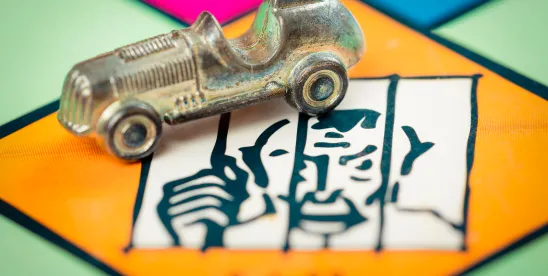On September 11, 2024, China’s Supreme People’s Court (SPC) published a set of Typical Cases on Anti-Monopoly and Anti-Unfair Competition (反垄断和反不正当竞争典型案例目录). Two of the cases directly involve intellectual property including the “New Energy Vehicle Chassis” trade secret case discussed here in which 640 million RMB was awarded (but is unlikely to be collected) and a Schneider Electric trademark infringement case in which the Jiangsu Provincial High People’s Court awarded Schneider 40 million RMB. China, while not a common law jurisdiction, nonetheless uses “typical cases” to guide lower courts and unify judgement standards.
 As explained by the SPC :
As explained by the SPC :
7. “Schneider” counterfeiting and confusion dispute case – determination of the amount of compensation for malicious infringement with huge profits
7.“施耐德”仿冒混淆纠纷案【江苏省高级人民法院(2021)苏知终19号】
[Basic facts of the case] Schneider Electric Europe licensed the registered trademark “SCHNEIDER” approved for use on Class 9 circuit breakers, electric switches and other products to Schneider Electric (China) Co., Ltd. in which it invested. Schneider Electric China has invested in multiple electrical production enterprises across the country, and most of them use “SCHNEIDER” as their corporate name. The “SCHNEIDER” and other series of trademarks have a high market reputation in the electrical industry and the market. Schneider Electric China believes that Suzhou Schneider Elevator Co., Ltd.’s (hereinafter referred to as Suzhou Schneider) prominent use of the “SCHNEIDER” and “SCHNEIDER” logos constitutes trademark infringement, and its registration of a corporate name containing the “SCHNEIDER” name and use of a domain name similar to the core element of the “SCHNEIDER” trademark, “Schneider electric”, constitutes unfair competition, so it filed a lawsuit in court, requesting that Suzhou Schneider stop the infringement, change the corporate name, compensate for losses, and eliminate the impact. Suzhou Schneider argued that the use of the logo in question was authorized by an overseas company, and there was no intent to freeride on the goodwill of the trademark in question. After trial, the court of first instance held that the alleged behavior constituted trademark infringement and unfair competition, and ordered Suzhou Schneider to immediately stop the alleged behavior; handle the procedures for changing the company name; compensate for losses of 40 million RMB and reasonable expenses of 150,000 RMB; and publish a statement to eliminate the impact. The Jiangsu Provincial Higher People’s Court held in the second instance that Suzhou Schneider was aware of the popularity of the trademark and the name involved in the case, and signed a brand use agreement with an overseas company to obtain authorization for a logo similar to the trademark involved in order to freeride on the goodwill of the trademark involved. The first instance judgment was correct in its determination of trademark infringement and unfair competition. Taking into account the popularity and market value of the trademark involved, the subjective malice of Suzhou Schneider, the time and scale of the infringement, and other factors, the amount of 40 million RMB in compensation determined by the first instance judgment was not improper. The Jiangsu Provincial Higher People’s Court rejected the appeal in the second instance judgment and upheld the original judgment.
[Typical Significance] This case is a typical example of severely punishing “free-riding” and other counterfeiting and behaviors that cause consumer confusion. When there is sufficient evidence to prove that the profits from infringement exceed the statutory maximum limit of compensation, the People’s Court reasonably distributes the burden of proof, correctly applies the discretionary compensation method to determine the amount of compensation as appropriate, effectively cracks down on market confusion behaviors that piggyback on the goodwill of others, significantly increases the cost of infringement, and fully reflects the clear judicial orientation of effectively strengthening the protection of intellectual property rights.
The original text, including all eight cases, is available here (Chinese only).



 />i
/>i
